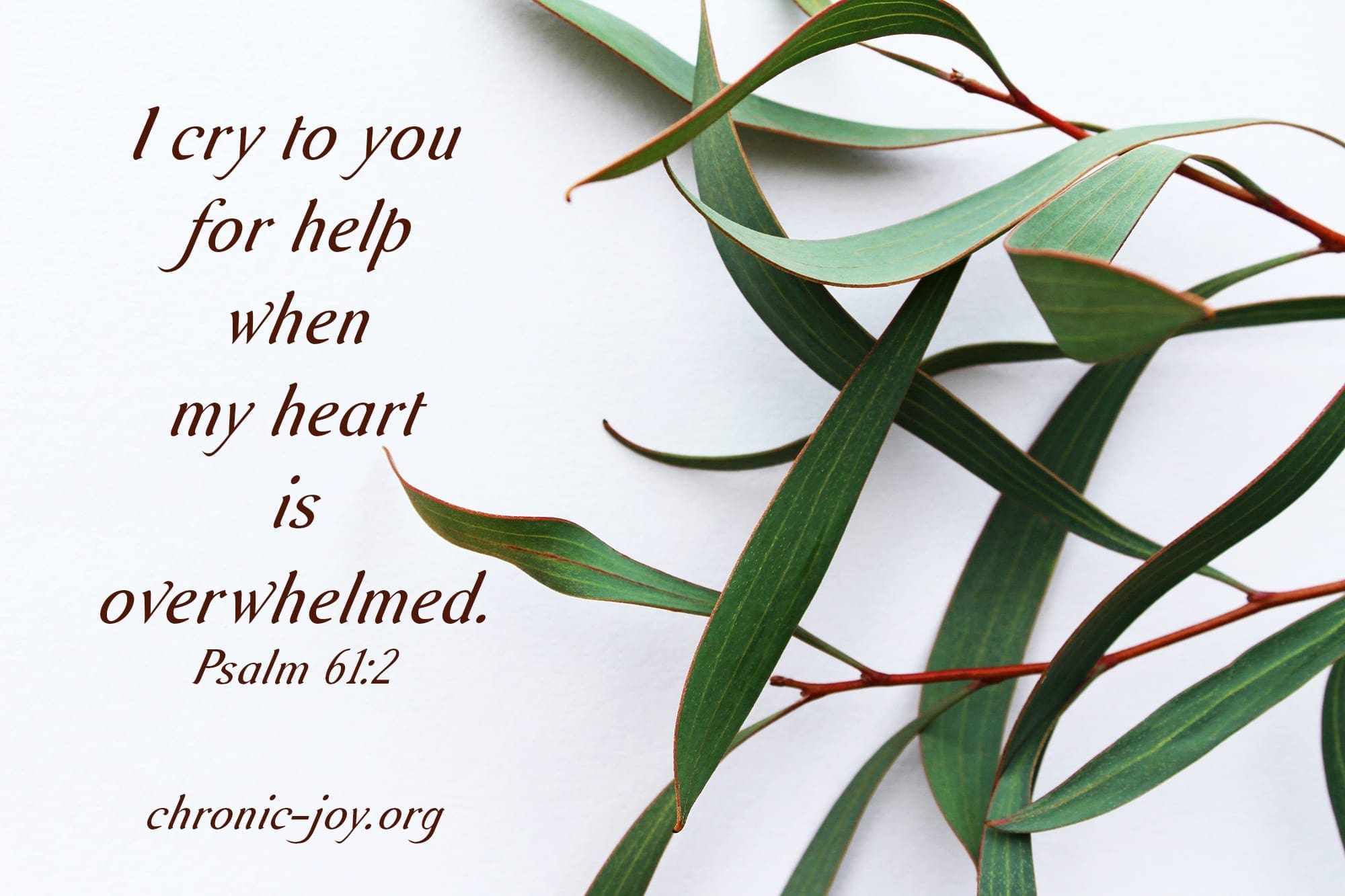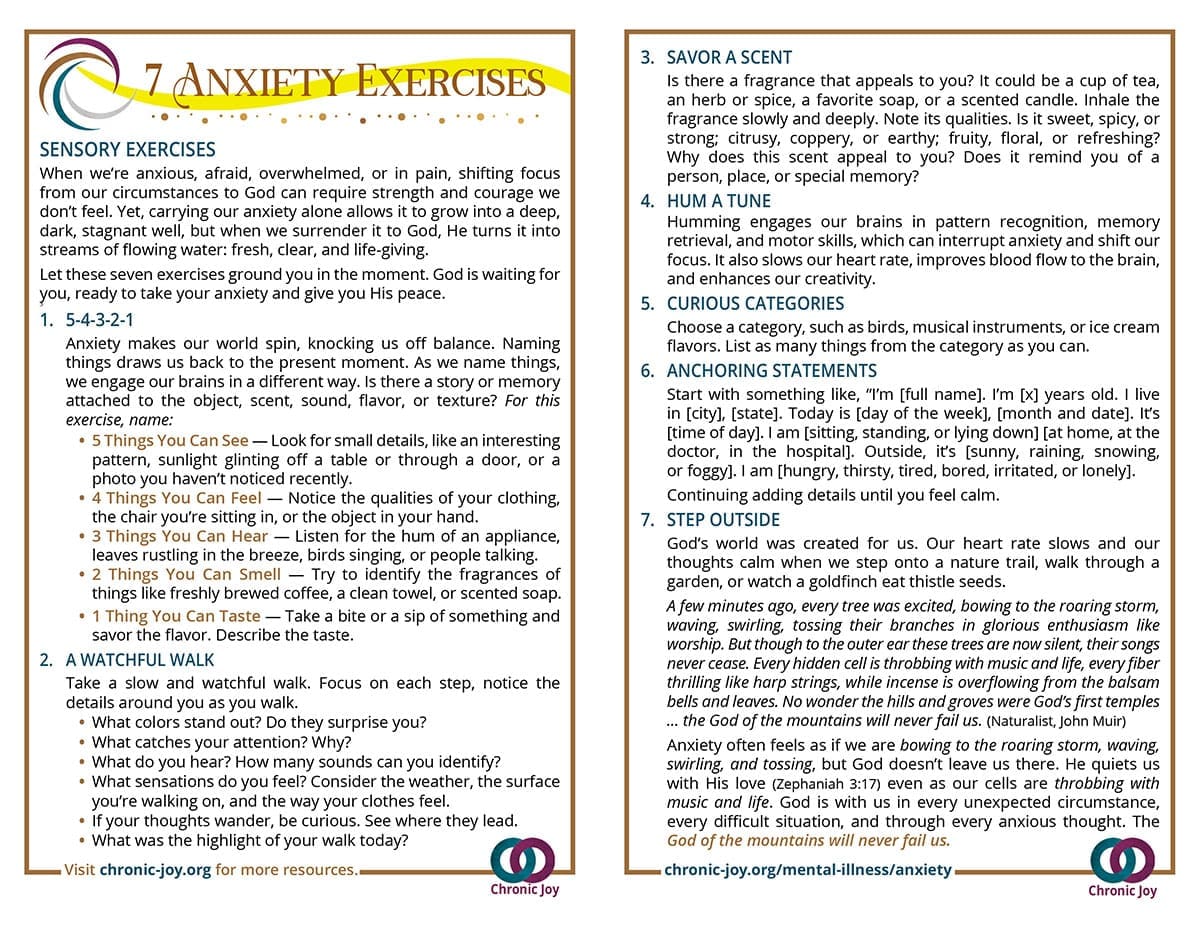
“I cry to you for help when my heart is overwhelmed.” (Psalm 61:2 NLT)
OVERWHELMED
Imagine a moment when you become overwhelmed. Your brain freezes. Your emotions rise. You hear an inner voice say, “This is all just too much.” We become overwhelmed when the requirements of our lives (real or perceived) feel greater than our personal resources. Feeling overwhelmed is a reality for many of us right now. So let’s talk about what’s going on and what will help.
THE BRAIN SCIENCE OF BEING OVERWHELMED
Most of us are familiar with the fight-or-flight response – but there’s a third component to it: freeze. When this happens, we shut down and suddenly can’t seem to think, process, or do one more thing.
Our nervous system, which is responsible for our fight-flight-freeze response, has two divisions—sympathetic and parasympathetic. When experiencing a threat, the sympathetic nervous system primes us for action and is responsible for fight and flight. If we stay in stress mode too long, the parasympathetic side of our nervous system, which is responsible for slowing us down and helping us relax, kicks in and we experience “freeze.”
These systems are designed to override the logical parts of our minds. That’s why you can’t just talk yourself out of feeling overwhelmed with facts or force yourself to “snap out of it.” God, in all His wisdom, made us with emergency brakes that kick in automatically for our overall well-being. If we never reached the point of overwhelm, we would destroy ourselves because we would never stop.
OVERWHELM HAPPENS IN THREE SITUATIONS …
- We’ve taken on too much. Our to-do list is more than we can handle. Dr. Ellen Hendriksen says, “Your brain doesn’t just see a to-do list; it sees a threat. It sees the threat of scarcity: not enough time, not enough energy, not enough magical ability to fit everything into twenty-four hours – or it sees the threat of failing, the threat of disappointing others, the threat of feeling incapable.”
- We’ve taken in too much. Research has shown that social media and the news can contribute to the feeling of being overwhelmed. For example, one study revealed those who consumed six hours or more of media coverage about the Boston Marathon bombing had higher stress levels than those who were there.
- We’re going too fast. Dr. Judith Orloff says about her stressed-out patients, “When they are feeling overwhelmed one of the first aspects I address is pacing: a basic energetic rhythm I train my patients to intuitively sense. Just as heartbeat and respirations tune our physiological tempo, pacing sets our subtle energy clock’s timing. Often we get caught in extremes.”
WHAT HELPS WHEN WE’RE OVERWHELMED?
First, we need to get our nervous systems to stop pulling the emergency brake. To do that, it helps to focus on the present moment. As a starting place, try this technique recommended by many mental health experts.
Countdown to Calm Down
For 60 seconds, breathe deeply and notice…
- 5 things you see (e.g., sky)
- 4 things you feel (e.g., mug)
- 3 things you hear (e.g., music)
- 2 things you smell (e.g., lotion)
- 1 thing you taste (e.g., coffee)
This helps our brains pause and realize there’s not an imminent threat, so they can get out of emergency mode. Then, related to the three ways we get overwhelmed, we can pause and ask ourselves these questions:
- If we’ve taken on too much: What can I eliminate, delegate, or minimize today? This can be small. For example, dinner tonight might be take-out instead of taking an hour to cook a meal.
- If we’ve taken in too much: What boundaries or limitations do I need to set today? This often means turning something off—the television, the notifications on our phone, the light next to our bed so we can go to sleep earlier.
- If we’re going too fast: What’s one way I can slow down today? Ironically, this may mean adding one more thing to your day like a walk, bath, nap, or anything else that has a different pace.
Try different things as you answer these questions. Over time, you’ll discover what works best for you. Having times when we become overwhelmed is part of being human but we can learn to manage it—and we don’t have to do it alone. As the Psalmist said, “I cry to you for help when my heart is overwhelmed” (Psalm 61:2 NLT).
Let’s pause today and recognize being overwhelmed doesn’t mean we’re weak. It means we have given absolutely everything we’ve got. Now it’s time to give ourselves what we need, too.
First published at Holley Gerth. Published with permission.


Holley Gerth
Wall Street Journal Bestselling Author and Life Coach
Holley loves humans, words, and good coffee. She is a Wall Street Journal bestselling author, licensed counselor, and life coach. She imagines a world where we all become who we're created to be, use our strengths to serve, and grow for a lifetime. Holley cofounded the groundbreaking blogging community (in)courage and cohosts the popular podcast More Than Small Talk. Her newest release is What Your Soul Needs for Stressful Times: 60 Powerful Truths to Protect Your Peace. Find out more and connect with Holley at holleygerth.com.

Anxiety Exercises
When we feel anxious, afraid, overwhelmed, or in pain, seeking wonder in God's incredible creation draws us into His Presence, shifting our focus from our circumstances to who God is and how very much He loves us.

Recent Comments